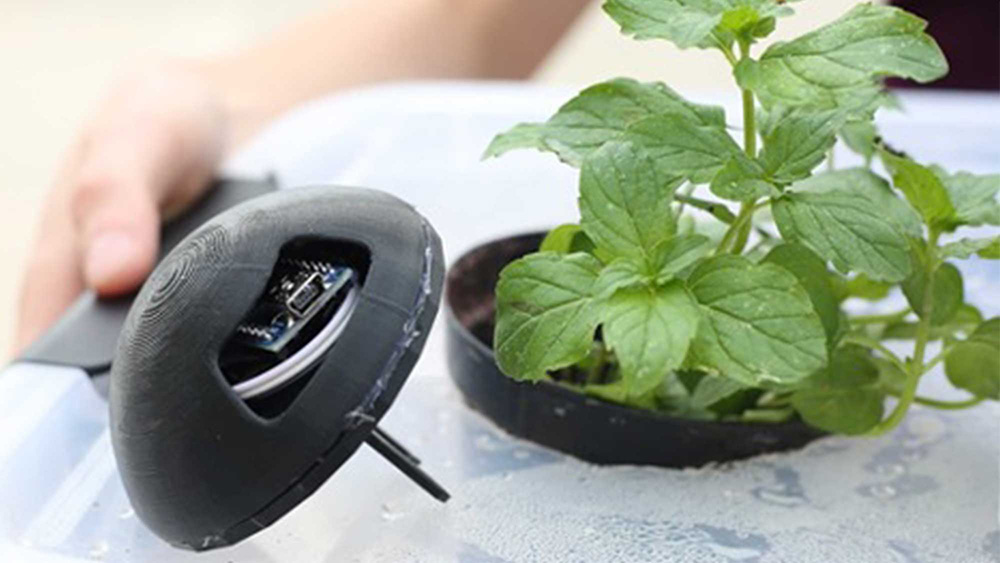
With the common theme of utilizing technology as a real-time assistant, each of the 11 teams developed a solution (some even invented prototypes), a business plan and a sales pitch that they would present to a panel of judges.
I've never seen a group that was so passionate and dedicated to working their solutions through to where they really believed that what they were coming up with was going to help people.
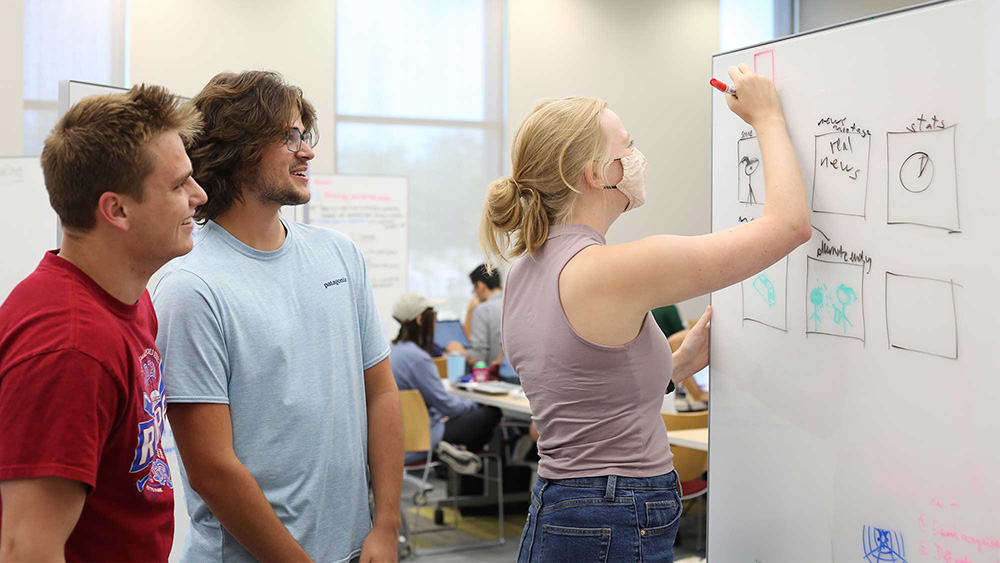
Each project utilized enhanced artificial intelligence to combat tasks as simple as cycling to more complex ideas such as mass agriculture.
With 11 presentations, the judges deliberated and narrowed down winners to the top three teams, each given cash prizes.
The competition highlighted every student's creativity, no matter where they were in their educational journey. For first-timers like freshman engineering student Matthew Coomes, whose team, Green Thumb, placed first, the competition was truly an unforgettable experience.
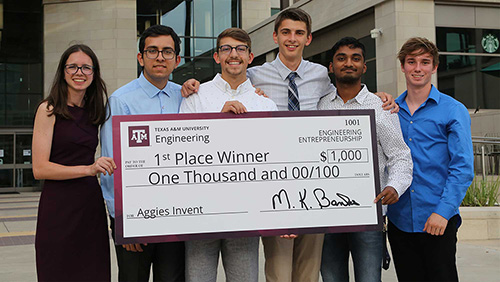
"We met a lot of new people and gained a lot of knowledge over the last few days,” said Coomes. “We each have skills, like mechanical, programming and financial, a large variety really, that intellectually challenged each other, which all played together to add on to the experience."
Coomes and his team took home the top prize of $1,000 for their idea of an agricultural environment monitoring system with live feedback through an app. It measures soil and water system quality, phosphorus, mineral content and temperature, and analyzes the data that is then compared to more ideal levels. This gives the user specific instructions for how to fix problems with their soil or water.
Even for returning winners like computer science graduate students Mohammad Sagor and Amran Haroon, there's always something to look forward to, improve on and learn. Their teammates, Tori Chandler and Sarah Gauthier, two international studies graduate students, brought a different perspective in the globalization aspect of the challenge to the team.
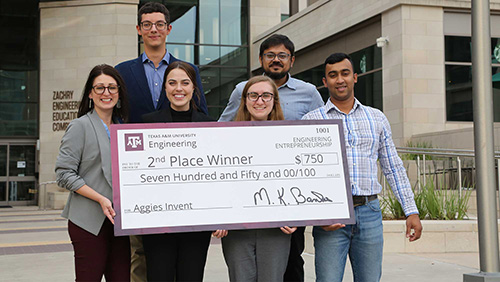
"It's not all about if your solution is solid, but also did you prepare your presentation from start to end? Did you have an implementation plan?” Sagor said, reflecting on his third, second place victory with his team Response Aid, which won $750.
Third place went to Sensory Overload, which took home $500. Their idea was to utilize sensors and vibrational speakers to enable peripheral vision and make it accessible to everyone, from law enforcement and the military to cyclists and the visually impaired.
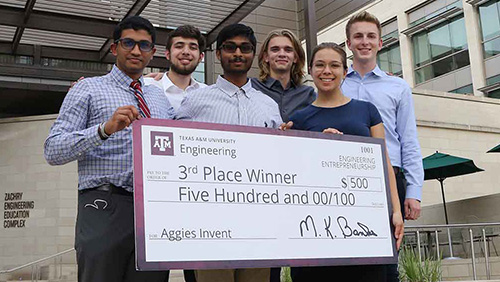
If it weren’t for a little push from their mentor Bailey, they wouldn’t have expanded their idea into the accessibility market.
“He told us, ‘There’s a bigger market than what you are currently doing, widen your lens and don’t limit yourself,’” said Loran Oswalt, electrical engineering senior.